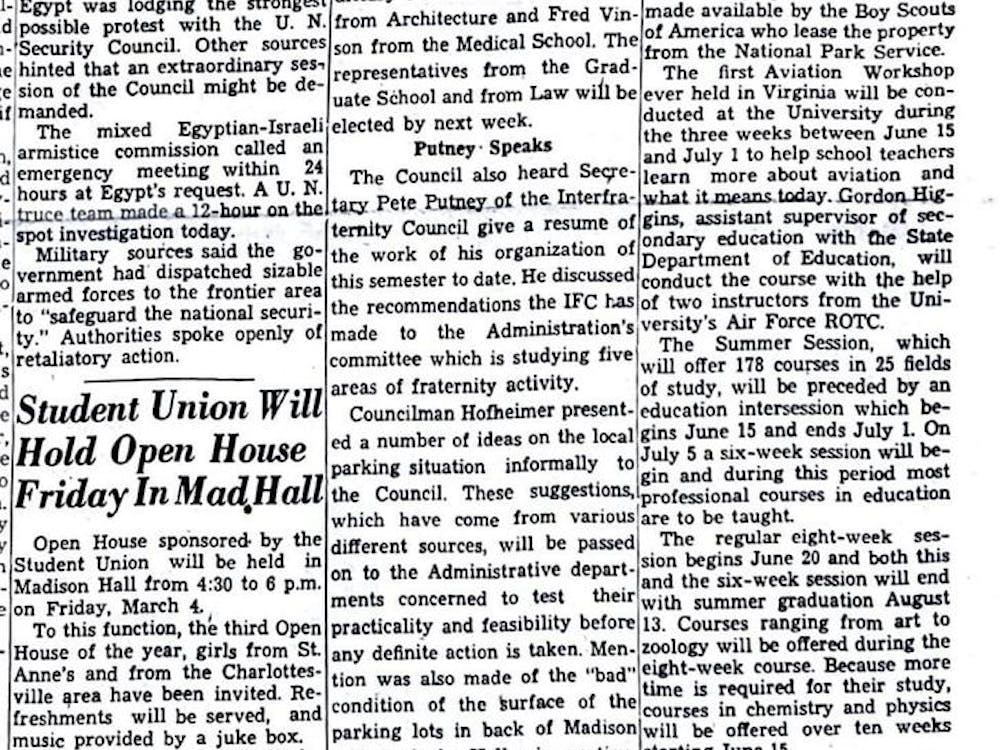At the Faculty Senate meeting Dec. 2, members discussed a new policy by which the University would stop paying health insurance premiums for graduate research assistants and begin charging the payments to the students' research grants.
Roseanne Ford, associate vice president for research and graduate studies, presented the policy at the Faculty Senate meeting. She could not be reached for comment yesterday.
According to Faculty Senate Chair Marcia Childress, the program would be phased in throughout the next three years, with a third of the cost billed to the grants in the next year and the payments completely covered by the third year. Former Faculty Senate Chair Robert Davis said the new policy would affect about a fourth of all graduate students, specifically those on research grants.
Childress said the major apprehension about the policy is whether taking the premium money from the research grants would affect research quality.
"The concern that was expressed at our recent senate meeting is that if money from a research grant is used to pay for this then it can't go to pay for something else related to the research project," Childress said. "Faculty doing research have expressed concern that this could cause additional constraints on their research money."
Davis said it was not apparent whether the quality of research would decrease based on the subtraction of the premium from grants.
"Yes, it's possible that would happen but it's not really clear," Davis said. "That's why I think it's wise of the University to do a phase-in on this."
Davis said the University began paying for graduate research assistants' health insurance two to three years ago in an effort to lure prospective students.
"It obviously makes the University more attractive to incoming students to have their insurance covered," Davis said. "We were just trying to improve grad education. Some of [the students'] peers at other institutions had their insurance covered, and we thought it might be a good idea."
The rising cost of health insurance, however, made University administrators rethink the policy.
"Obviously the cost of health insurance is going up for everyone and it got to the point where we had to make a decision," Davis said. The administration "found that it was possible to charge research grants for health insurance."
Brandi Cantarel, vice president of the Graduate School of Arts and Sciences Student Council, said the policy should not be a matter of concern for many graduate students.
"As I recall, before there was a subsidy in my department, we were paying insurance off of grants anyway," Cantarel said. "About 50 percent of the grant money goes to overhead anyway, paper and pens, stuff like that. So the percentage being taken for health insurance is not that big of a percentage compared to that."
Cantarel said a bigger issue of health insurance facing graduate students right now is the renegotiation of their insurance contract for next year. The Council is debating new health plans in place of its Chickering contract, which ran out this year.






